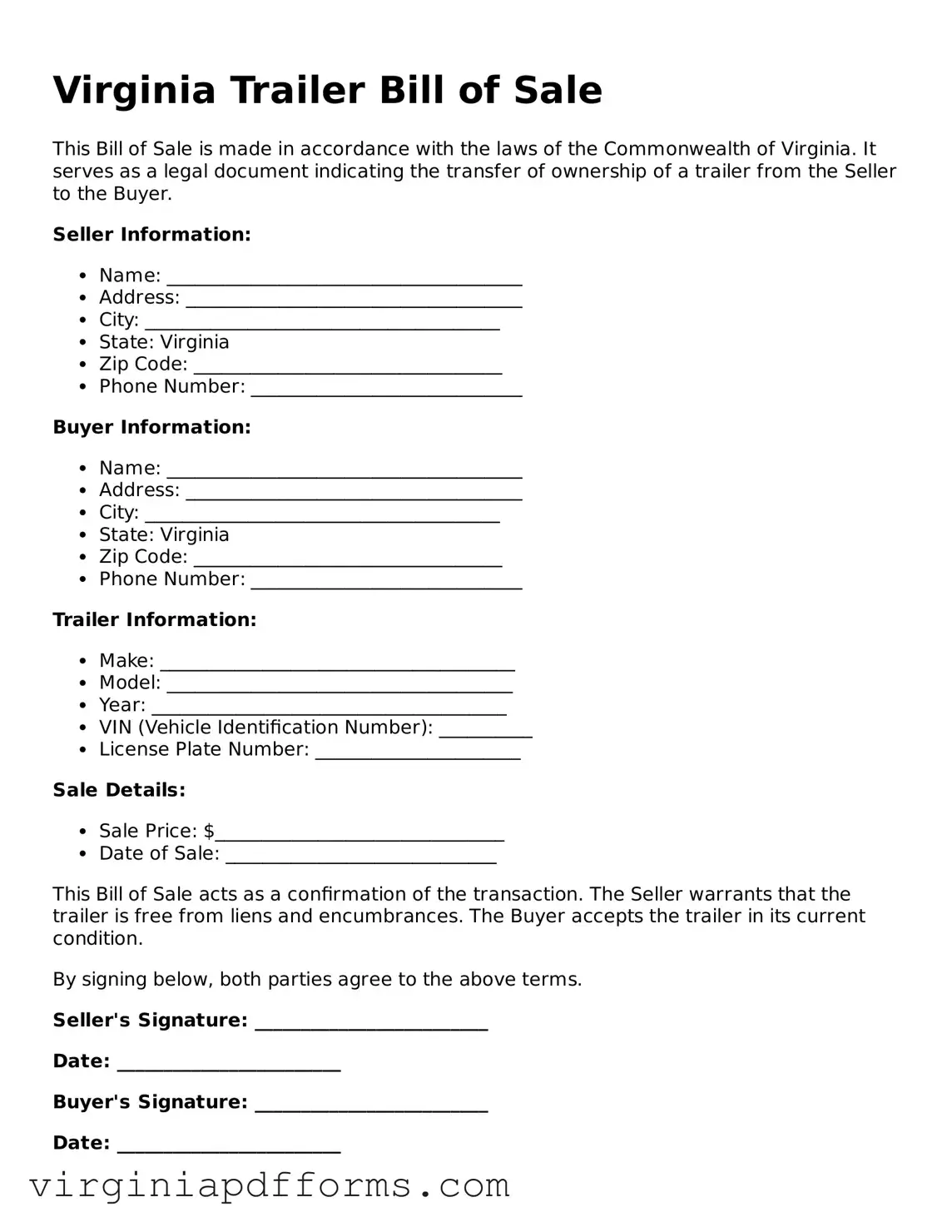Attorney-Approved Virginia Trailer Bill of Sale Document
The Virginia Trailer Bill of Sale form is a crucial document used to officially transfer ownership of a trailer from one party to another. This form not only serves as proof of the transaction but also helps protect both the buyer and seller by providing essential details about the trailer and the sale. Understanding how to properly complete this form can make the process smoother and more secure for everyone involved.
Access My Document Now

Attorney-Approved Virginia Trailer Bill of Sale Document
Access My Document Now

Access My Document Now
or
Free Trailer Bill of Sale File
Need this form wrapped up fast?
Finish Trailer Bill of Sale online — edit, save, download without effort.